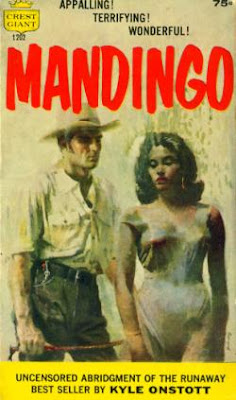
Killing people is a grim business. This is why, in fiction, hitmen are either tormented, existential figures or your garden variety psychopaths. It is rare to find a fictional contact killer who approaches his work with aplomb and joy de vivre. Augustus Mandrell is such a killer. The invention of Englishman Frank McAuliffe and the hero of three published books (and a rumored unpublished fourth one), Mandrell is the world's greatest hitman, and he's going to make sure you know it.
Starting with Of All The Bloody Cheek (Point Blank, 2005), which was first published in 1965, Mandrell narrates his adventures with relish. Cheek is more of a collection of four connected novellas, than a proper novel. The stories take place in the late 30's and early 40's. In each section, Mandrell relates the story of one of his "commissions," with each one being more elaborate than the next. Mandrell even has a nemisis in the form of an American Army Lieutenant (later a major) named Proferra, whose encounters with Mandrell leave him increasingly mutilated and unhinged.
The events may be historical, but McCauliffe gives Mandrell an urbane, witty, voice that is still engaging over 40 years after it initally appeared. McCauliffe has succeeded in creating a unique hitman who provides a wonderful counterpoint to his more serious counterparts. Unfortunately, Cheek is the only book in the series in print. Point Blank had, at one point, intended to reprint them all, but that plan seems to have fallen by the wayside. Pick this one up while you can still find it.









